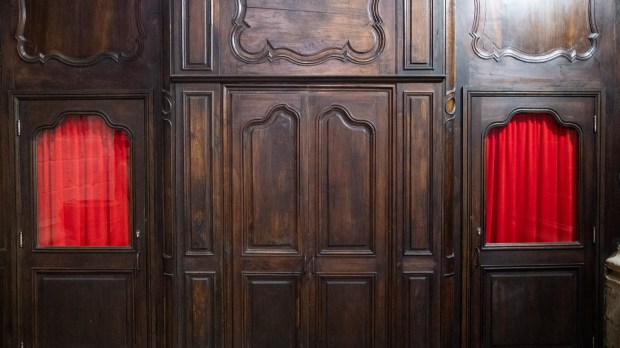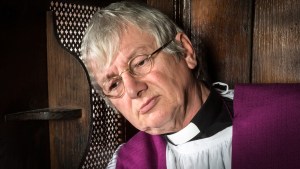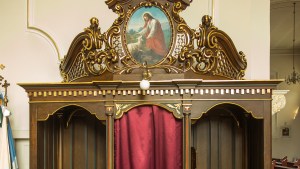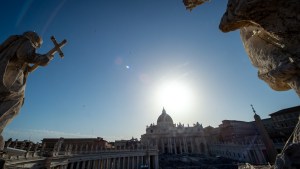The latest attempt to force members of the clergy to report information they learn in confidential settings is taking place in Vermont, and the sole Roman Catholic bishop in the state appeared before a legislative committee to argue against that effort.
Bishop Christopher Coyne of Burlington, Vermont, and two other Catholic priests sought to assure legislators that it’s possible to both protect vulnerable children and preserve religious liberty at the same time.
Since the Catholic clergy sexual abuse scandal started making headlines in the early 2000s, quite a few state and federal governments have tried to eliminate exemptions to mandatory reporting laws that protect the clergy-penitent exemptions.
A bill introduced by Vermont State Senator Dick Sears, a Democrat from Bennington, would repeal the Green Mountain State’s exemption for clergy. Sears’ bill would remove language such as this from the state’s mandatory reporting law:
“A member of the clergy shall not be required to make a report under this section if the report would be based upon information received in a communication that is:
(1) made to a member of the clergy acting in his or her capacity as spiritual advisor;
(2) intended by the parties to be confidential at the time the communication is made;
(3) intended by the communicant to be an act of contrition or a matter of conscience; and
(4) required to be confidential by religious law, doctrine, or tenet.
“Wickedness”
Bishop Coyne, appearing before the state’s Senate Judiciary Committee in Montpelier, the state capital, on March 3, said that Sears’ bill “crosses a Constitutional protective element of our religious faith: the right to worship as we see fit.”
The legislative change effectively would require priests to violate the sacramental seal, sometimes called the seal of Confession.
As Fr. John Paul Kimes, associate professor of the practice at Notre Dame Law School, noted in his testimony, delivered via Zoom, the Code of Canon Law of the Catholic Church states that “the sacramental seal is inviolable.”
The 1983 revision of the Code says it is “absolutely forbidden for a confessor to betray in any way a penitent in words or in any manner and for any reason.” A priest who reveals what he learns during a sacramental confession is automatically excommunicated.
Fr. Kimes, as a member of the Discipline Section of the Dicastery for the Doctrine of the Faith in the Vatican for 11 years, prosecuted priests for violations of the seal. He said that such priests are subject to the “most severe penalties the Catholic Church has, including dismissal from the clerical state.”
He said that the English translation of the Code of Canon Law fails to convey the gravity of the matter. The original Latin of the text uses the word “nefas,” a rarely used word in the Code, which translates as “abomination,” “atrocity,” or “wickedness.”
The seal dates to the 10th century, “at the very least,” he said, and probably goes back much farther. The priest-penitent privilege has been “part of our American tradition since at least 1813,” he added, when a New York judge affirmed a Catholic priest’s right to withhold information on a suspect who had gone to him for confession.
Why is it so important for the Church and for Catholics?
“There is no moment in which [the faithful] are more spiritually vulnerable than in the act of confession, when we take our deepest secrets and lay them bare before the priest, who represents Christ,” Fr. Kimes explained. “It is a moment of supreme spiritual intimacy.”
A concern shared by other denominations
The priest said that such a privileged conversation is also sacrosanct in other Christian denominations, including the Church of Jesus Christ of Latter Day Saints, the Lutheran Church of the Missouri Synod, and the Episcopal Church.
“In the Orthodox Church, the need to maintain the secrecy of Confession comes from the fact that the priest is a witness before God,” said Kimes, who is a Maronite priest. “No one could expect a sincere and complete confession if the penitent has any doubts regarding the practice of confidentiality.”
Thomas Borchert, professor of religion at the University of Vermont, however, said in his testimony that the Presbyterian Church USA requires Ordained Officers to “respect the privacy of individuals and not divulge information obtained in confidence without express permission, unless an individual is a danger to self or others.”
“Religious institutions in the US and elsewhere have not been particularly effective at protecting victims of abuse,” Borchert charged. “The Catholic Church, the Southern Baptist Convention, Zen and Tibetan monasteries in the US have been implicated in the last several decades (and more recently) both in instances of sexual abuse and their cover up.”
He said that Vermont’s mandatory reporting law “seeks to end sexual abuse of children by requiring certain groups of people to report it when they hear about it. The clerical exemption makes it easier for these institutions to not protect alleged victims.”
Bishop Coyne acknowledged that priests and lay employees of the diocese are “mandatory reporters” under state law. In the majority of communications priests have with the people they serve, there is no problem in doing so.
But sacramental Confession is different. Confession, he said, is “part of the Church’s official worship.” The diocese opposes removing the clergy exemption because it would “infringe on our first amendment rights.”
Also testifying was Msgr. John McDermott, vicar general of the Diocese of Vermont, who pointed out that the majority of confessions are done anonymously, with the priest unable to identify a penitent on the other side of the privacy screen. “So even if we wanted to report something, what would we report?” he asked. “No name, no child’s name, no anything.”




